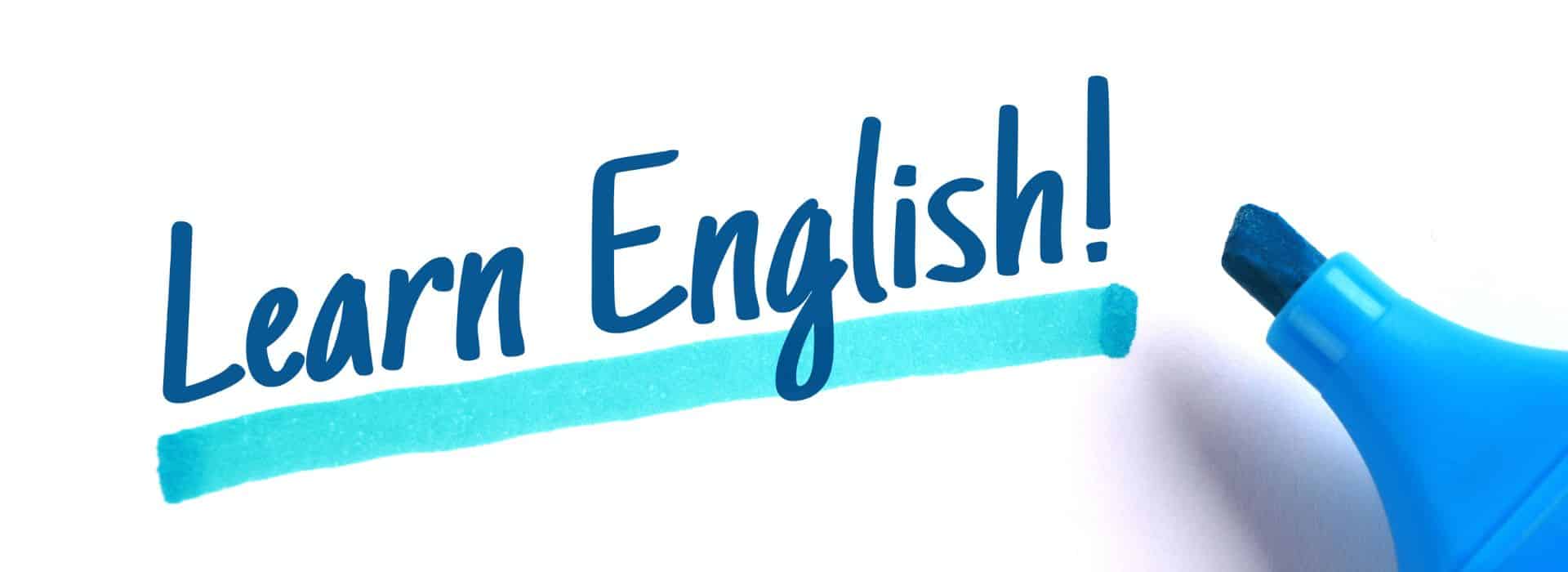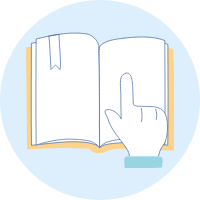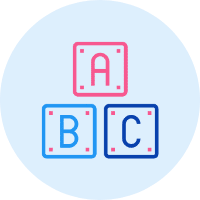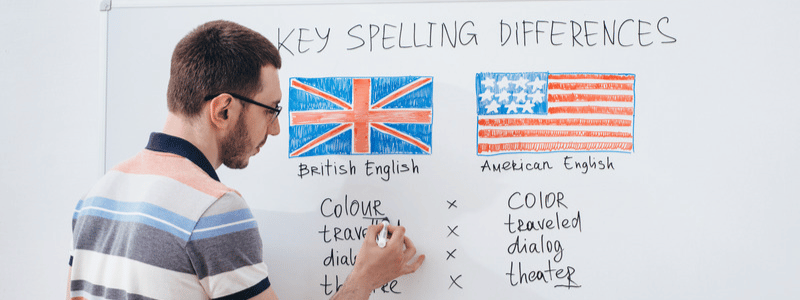Learn English Grammar at Your Own Pace
Explore the World of English Grammar: Free Notes, Worksheets, and Quizzes at Your Fingertips

We cannot think of a language without its grammar. It might be a bane to language learners, but grammar strengthens your hold and makes you market-ready.
Uses of Grammar
Grammar holds a significant position in English. Morphology (forms and structures of words) is explained through grammar. Syntax or Sentence structure is based on grammar. It means that grammar guides you on using the language while speaking and writing.
Why is grammar so important in English?
Grammar is what binds the language. Without it, your words would be a pile of gibberish! You are directed by grammar to communicate to be precise and intelligible. Grammar does not just aid you in avoiding mistakes but assists you in impressively building your language abilities.
Also, it is a tool you require not just for writing for English exams or official emails but also for informal communication. Your fluency and confidence while communicating depend on grammar.
And in specific situations, it is of immense value. For example, suppose you are applying to a university in an English-speaking country or going for an interview in one such country. In that case, you will be evaluated for your grammar ability.
Your social communication: online or offline: gets affected by grammar. For example, bad grammar is considered a red flag on dating apps. When you meet new people or go to a new place, there is always a misunderstanding if you cannot manage your grammar. Anything that you speak or write requires structure.

Tips on how to improve English Grammar
The most vital things can be the most difficult to understand. And grammar follows this maxim. But it does not mean that you cannot excel at it. On the contrary, you can become a grammar pro by following the practices below.

Read
Reading helps in the reinforcement of grammar rules. You may not understand a grammar concept until you read how it is used. So reading enables you to visualise the grammar concept. And also builds vocabulary and fluency.

Grammar Books
Many books are written for specific age groups and purposes: Collins Easy Learning Grammar and Punctuation, Oxford Modern English Grammar. Figure out which one suits your learning needs and refer to it frequently. It is always good to have support material handy.

Listen attentively
You know people whose grammar level is a couple of notches higher than yours. Observe their speaking ability. Ask for their feedback regarding yours. If you attend English learning classes, your tutor will have a few suggestions regarding your language usage.

Go back to the basics. Regularly
As you move from one concept to another, getting confused or losing track of what you have learned is easy. Therefore, even native English speakers have to go back to the grammar basics and revise them. Brushing up the concepts helps in retention and a better grasp of the language.

Enroll in English classes
Great learning platforms such as Edulyte can improve your proficiency in the English language through their one-of-a-kind, innovative language courses. With internet-enabled tools, you can learn anywhere, anytime, with customised lessons. Particular emphasis is laid on grammar and its various arenas.
Basic grammar topics
All the facets of grammar are essential. But there are specific basic topics that lay the foundation of your expertise in grammar.
- Nouns: They are naming words.
- Person: John, Arianna
- Place: Sydney, Canada
- Animal: dog, tiger
- Thing: pen, laptop
Any name is a noun. It includes days, months, seasons, sports, websites, books, etc.
Names of specific persons, places, brands are called proper nouns and written with a first capital letter: Patrick White, Melbourne, Telstra.Words used for general, i.e.they are not for a specific person, location, brand names are called common nouns: boy, park, bench.
Verbs:
They are usually action words in English. Work, eat, play, sing, dance, fight.. these are all verbs. They are modified/conjugated depending on the time they occur and the person doing the action: present, past, or future.
Example
- She goes for a run every day.
- She went for a run yesterday.
- She will go for a run tomorrow.
Adjectives:
Also called the describing words, they describe the person, location, things in a sentence.
Example
- The red car drove away.
- The ice cream in this shop is delicious.
- He sure is a competent worker.
In the examples above, red describes the car; delicious gives us information about the ice cream, and competent tells us about the worker.
Pronouns:
These words replace nouns in a sentence. We use them so that we do not have to employ the noun repeatedly. He, she, it, they, us, we are all pronouns.
Example
- Sharon is my friend. Sharon lives next door.
- Sharon is my friend. She lives next door.
- She replaced the noun Sharon.
- Italy is a great place. Italy has some beautiful beaches.
- Italy is a great place. It has some beautiful beaches.
- It replaced the noun Italy.
Basic rules of English grammar
Though each aspect of grammar brings a set of rules, some basic guidelines should always be kept in mind while speaking or writing.
Observe the homophones:
Homophones are words that sound the same but have different meanings and spellings. They can easily baffle you.
- flower and flour
- ball and bawl
- hour and our
- mail and male
- plain and plane
Ensure you pay attention to the difference in spellings and their meanings to avoid confusion over their usage.
Subject-verb agreement:
It means that the sentence’s subject must be compatible with the main verb. Generally, singular subjects take singular verbs, and plural verbs take plural verbs.
Example
- The car runs on electricity.
- The cars run on electricity.
Connect with conjunctions
Conjunctions are used to connect two words, phrases, or even two sentences.
Example
- I like singing. Singing helps me de-stress.
- I like singing because it helps me de-stress.
The most commonly used conjunctions are:
- because: used to give a reason
- and: to add to the information
- but: for contrast
- or: to provide an alternative
Sentence creation
The English language does not stress on long and complicated sentences. You must ensure that your sentence has a subject, a verb, and an object with possible conjunction. It is always advisable to use commas to demarcate different segments of the sentences.
Questioning words sequence
Questions formation in English differs from a sentence. While forming questions, you can start with:
- a question word
- an auxiliary verbs: to be, have or do
- a modal verb: can, may, will
- Do you like this dress? (auxiliary verb)
- What are you doing? (question word)
- Are you coming to the party tonight? (auxiliary verb: to be)
- Where is the classroom? ( question word)
- How have you been? (question word)
- Did you send the mail yesterday? ( auxiliary verb: do)
Say no to double negative
Using double negatives is considered a sign of poor grammar. Also, it leaves the listener a bit perplexed regarding what you are trying to say.
- I ain’t got nothing.
- She can’t find her glasses nowhere.
- We can’t see no one in the hall.
- There isn’t no milk in the fridge.
- She did not mention neither the date nor the amount.
Know your tenses
Tenses indicate the time an action occurs. There are a total of 12 tenses in English, but the ones you have to focus on are:
Present Simple: used for general truths, situations, and habits.
- I go to school every day.
- We meet every Friday evening.
Present Continuous/ Present Progressive: describe an ongoing action or confirmed plans.
- She is watching TV right now.
- We are going to attend the party tonight.
Past Simple: used to talk about actions that happened and got over in the past.
- I slept late last night.
- She ate her lunch on time.
Past Continuous/ Past Progressive: is used to talk about actions that went on for some time in the past, at a specific time.
- The children were playing when you arrived.
- I was travelling when the accident occurred.
Present Perfect: discusses events of the past connected to the present.
- They have known each other for fifteen years.
- He has played the guitar since he was five.
Future Simple: to talk about events that will happen in the future.
- I will leave for the airport in the evening.
- They will host a grand celebration next year.
Mind your punctuation
Punctuation holds prominence when writing. Apostrophe, commas, quotation marks, capital letters are the areas where you will end up making mistakes.
- Every proper noun starts with a capital letter. Also, every sentence begins with a capital letter in English.
- Use quotation marks only while quoting someone else’s words.
- Do not use an apostrophe for plurals. Just add an “s.” Also, apostrophes are used for contraction: should not – shouldn’t
- Use commas for a break in your sentence or speech. Employ them to demarcate items in your sentences.
I like apples, pineapples, and grapes.
Essential types of questions in English grammar
A language depends on its sentence structures and its question formations. For example, English has several types of questions, each with its set of instructions on how to go about forming them. Reading and recognising questions is one thing, but creating them can be daunting. Thus it becomes essential to know the different types of questions.
Yes/No questions
The easiest and basic questions that you can form can start with an auxiliary verb or a modal verb.
- Can you help me?
- Have you eaten?
- Did you finish your work?
“W” questions
These questions start with: what, why, where, when, and why. These types of questions also include the “how” questions.
- Which chocolate did you like? (to ask about things)
- Where is this shop located? (to ask about places)
- Who is he? (to ask about people)
- When will the train arrive? (to ask about time)
- Why are you late? (to ask for a reason)
- How to write the report? (to ask about the way things are done or the way an event happens)
- How many naps do your need? / How much did this car cost you? How often do you exercise? ( to ask about an amount or numeric figure)
Indirect question
These are crafted when you intend to be formal or polite. For example, a phrase is added before a direct question to make an indirect question.
- Direct question: Where is this restaurant?
- Indirect question: Could you please tell me where this restaurant is?
- Do you know where this restaurant is?
Tag questions
These questions can be fun to form. They are asked when you wish to confirm that you have understood or heard something correctly. A question tag is added as the opposite form of the auxiliary/main verb/modal verb used in the sentence. So is becomes isn’t, does becomes doesn’t. Contractions are used in negative tags.
- The train leaves at 5 p.m., doesn’t it?
- You will get the dessert, won’t you?
- It is sunny now, isn’t it?
One on one and group lessons
With a boom in ed-tech, online classes are the present and future of education. The effectiveness of teaching and learning has increased exponentially due to online education. With path-breaking techniques and flexible learning arrangements, learners gain skills and knowledge online.
You can choose between one-on-one or group classes for your English learning. But, first, you have to figure out the answer to the questions: what are your learning objectives, and what kind of environment do you seek?
If you wish the instructor to focus on your learning difficulties specifically, you should opt for one-on-one classes. In such classes, you get to see results instantaneously as you are the sole focus of the course. The curriculum and lessons are planned around your learning pace and knowledge. Also, if you seek a flexible schedule, this form of learning will do wonders for you.
Many prefer to learn in a social setting with constant interaction. Group classes are a boon for those. Speaking and constant communication encourage you to pick up from the expertise of others. Also, such classes are economical as compared to one on one classes.
Frequently Asked Questions
Grammar is the set of rules of the language. The guidelines that you should follow when forming sentences or joining words. It provides structure to the language and makes communication easy.
Of course! With technology enabling effective learning online, mastering grammar seems effortless now. Many institutions are giving access to their English classes and grammar courses online. Interactive lessons, videos, audio clips, and innovative resource materials have helped many with their English grammar.
Many online grammar tools can assist you regarding your grammar, like Grammarly. If you are in a hurry to type out your emails or reports, these seem to be a blessing.
But in verbal communication, your grammar has to be good enough for your listener to understand you. And that is why attending English classes with a particular focus on improving your grammar becomes necessary.
These seem like simple words but can give a migraine when you try to understand their use. People usually confuse one with another, and even native English speakers can make mistakes while using them.
It would help decide whether you intend to use them for a “countable” or an “uncountable” noun.
Fewer is used for countable nouns in a comparative form.
I have fewer apples today than I had yesterday.
You are making fewer grammar mistakes now than you did two months back.
Whereas less is used for uncountable nouns.
There is less water in my water bottle.
There is less space in the room due to the new cupboard.
When making a vertical list:
1. Capitalise the first letter of each bullet point.
2. Use periods or question marks at the end of a sentence.
3. Capitalise the proper nouns in the list for emphasis.
4. Use commas in case a bullet point has different items being mentioned.
* Buy milk, sugar, and eggs.
* Call Amazon customer care.
* Gift wrap presents for Stacy.
It’s ok to make mistakes. Even the most fluent linguists do that. What is important is that you recognise your mistakes and correct them.
Keep a tab on the kind of mistakes that you make. For example, are they mostly punctuation errors? Are you messing up your tenses?
Do you misplace your apostrophes?
After figuring out your mistakes, go back to the concept and revise it. Then, pay special attention to it when communicating.
You become more confident with the language by reducing your grammar errors.
The most common grammar mistakes are
Subject-verb agreement: the sentence’s subject must be compatible with the main verb. Generally, singular subjects take singular verbs, and plural verbs take plural verbs.
The dog bark at the stranger. (incorrect sentence)
The dog barks at the stranger. (correct sentence)
2. Use of tenses: a sentence talking about a particular period
should use the same tense.
She went to school tomorrow. (incorrect tense)
She will go to school tomorrow. (correct tense)
3. Misplacing apostrophes: they are used to show possession but are not
to be used after possessive pronouns.
This is Moira’s dog. (apostrophe)
This dog is hers. ( possessive pronoun, does not require apostrophe)
4. Run-on sentence: when two or more independent clauses are joined
without coordinating conjunction and/or a punctuation mark to
separate them.
It was sunny we went for a picnic.
The correct sentence can be:
It was sunny, so we went for a picnic.
It was sunny. We went for a picnic.
The four types of questions that you can make in English are:
Yes/No questions
The easiest and basic questions that you can form can start with an auxiliary verb or a modal verb.
Can you help me?
Have you eaten?
Did you finish your work?
“W” questions
These questions start with: what, why, where, when, and why. These types of questions also include the “how” questions.
Which chocolate did you like? (to ask about things)
Where is this shop located? (to ask about places)
Who is he? (to ask about people)
When will the train arrive? (to ask about time)
Why are you late? (to ask for a reason)
How to write the report? (to ask about the way things are done or the way an event happens)
How many naps do your need? / How much did this car cost you? How often do you exercise? ( to ask about an amount or numeric figure)
Indirect question
These are crafted when you intend to be formal or polite. For example, a phrase is added before a direct question to make an indirect question.
Direct question: Where is this restaurant?
Indirect question: Could you please tell me where this restaurant is?
: Do you know where this restaurant is?
Tag questions
These questions can be fun to form. They are asked when you wish to confirm that you have understood or heard something correctly. A question tag is added as the opposite form of the auxiliary/main verb/modal verb used in the sentence. So is becomes isn’t, does becomes doesn’t. Contractions are used in negative tags.
The train leaves at 5 p.m., doesn’t it?
You will get the dessert, won’t you?
It is sunny now, isn’t it?
All aspects of grammar are essential and relevant. However, its vital components in everyday use are Nouns (naming words), Verbs (action words), auxiliary verbs, tenses, adjectives (describing words).
To determine which concepts you face difficulties, you must analyze your grammar mistakes and revise them. A way to improve your grammar skills is by enrolling in English language classes.
If you and your friend are the subjects in the sentence, it is My friend and I. In English, me is used when you are the receiver of the action or the object.
Number is singular when used in English, but when used in an expression like A number of people, it comes plural. Therefore, the correct answer is: “A number of people are.”
Collective nouns refer to a group or the members of the group. Therefore, flexibility is required when deciding the verb for them.
The PTA has discussed all the issues.
The members of the PTA have decided to meet next week.
This question cannot have a set answer. It depends on various factors: the level of grammar you wish to be proficient in, the number of hours you dedicate to learning, the English classes you have signed up for, among others.
With the proper guidance, resources, and dedication, you can improve your grammar within a short time.
Not really when you compare it to languages like German and French. With constant practice and attentiveness to the instructions provided by your mentor, you will be able to handle English grammar significantly well in a few months. Do you need motivation to study? Read some Motivational Quotes
These are used to enclose a quotation within a quotation.
He said, “The movie ‘Matrix Resurrection’ isn’t as half as good as ‘Matrix Reload.’ Why did they have to make such a movie?”
In, at, and on. Yes, the shortest of them is the trickiest.
Example:
You went to the shop in the morning. But you can not go to bed in night. So you go to bed at night, but you cannot have breakfast at the morning.
You were born on 15th July, but you were born in July if you wish to mention only the month.
Enrolling in our classes would not take you more than a few minutes. Log in on our website: edulyte.com Check the courses catering to your requirements. Please go through our Tutors list. Select the class timings that are suitable for you, and in a few clicks, your language learning begins!
We have got you covered regarding that as well. When you register with us, our qualified tutors assess your language knowledge. We offer you the course that would help yield the best results based on the outcome.
We offer courses at Beginner, Elementary, Pre-Intermediate, Intermediate, Upper-Intermediate, Advanced levels. We also have special packages for training in each skill.


